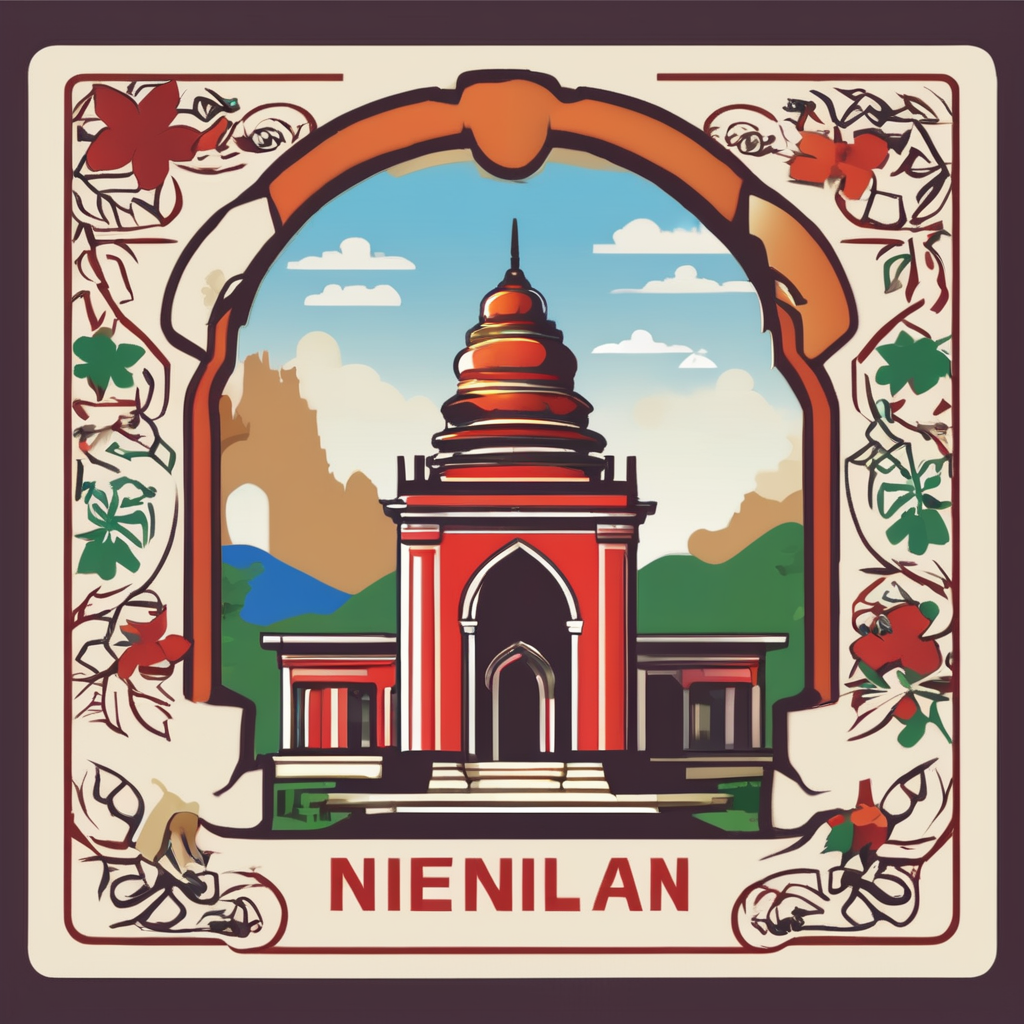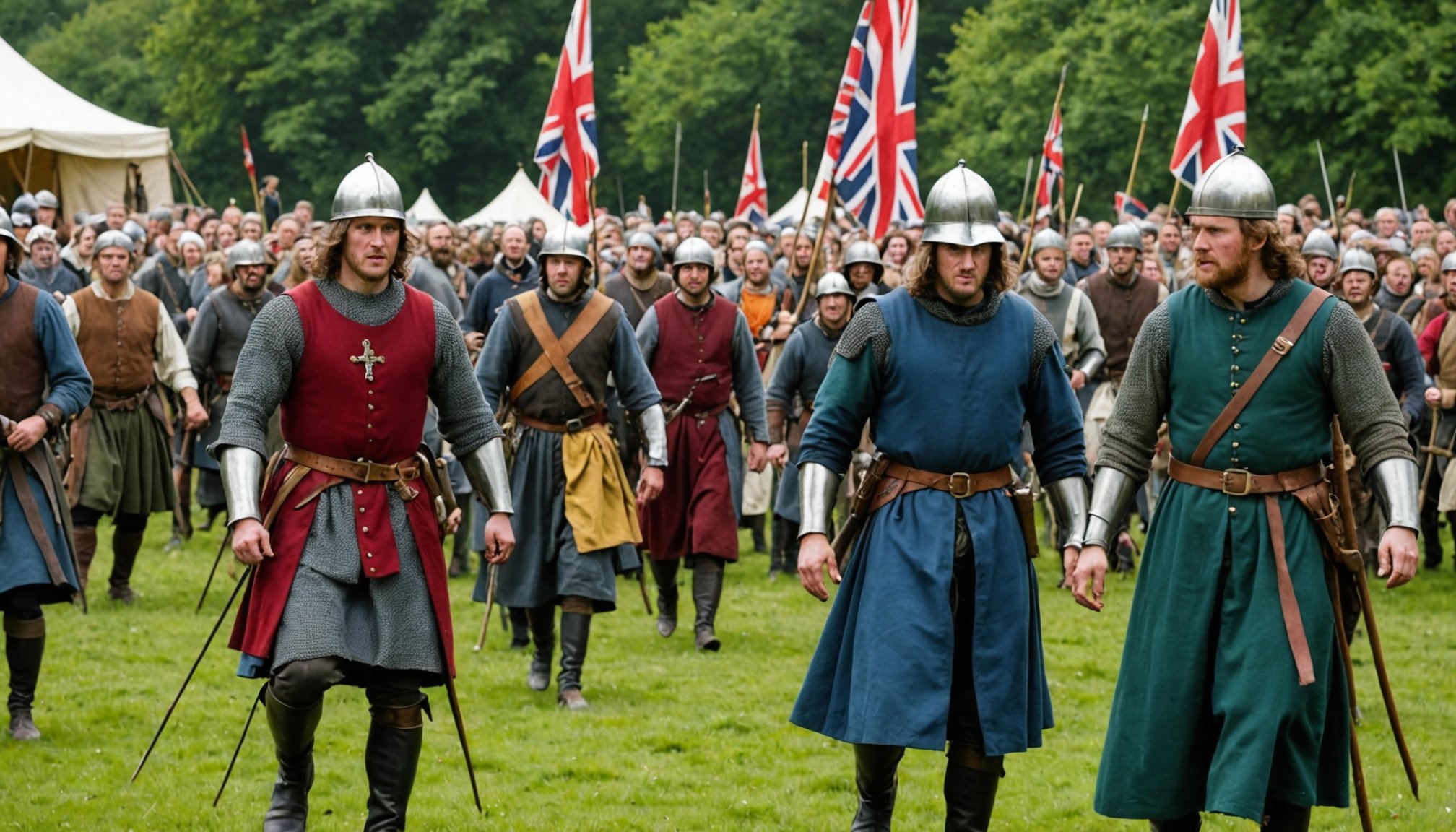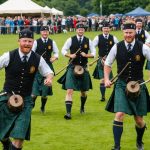Overview of Medieval Festivals in the UK
Medieval festivals in the UK offer unique cultural experiences, transporting visitors back in time to explore the grandeur of the past. These events hold a deep historical significance, portraying life as it was between the 5th and 15th centuries. They serve as living museums where British crafts are preserved and celebrated, ensuring that the traditional skills and knowledge are passed down through generations.
These festivals have evolved over the years, becoming integral to the local culture. Originally rooted in religious or seasonal celebrations, they now draw visitors from around the world, contributing significantly to local economies. The artisanship displayed ranges from blacksmithing and weaving to calligraphy, allowing attendees to see and participate in centuries-old crafts.
Additional reading : Explore Top UK Locations to Master the Art of Traditional British Basketry!
Traditional medieval festivals also foster community spirit and an appreciation for history. They feature enactments, jousting tournaments, and a variety of performances, making history engaging and interactive. Through these festivals, the UK preserves its rich heritage, encouraging pride in craftsmanship while influencing contemporary cultural practices. Visiting one can be an enlightening glimpse into a bygone era, providing entertainment and education for all ages.
Notable Medieval Festivals to Attend
For those eager to explore history in a lively way, the UK hosts a variety of top medieval festivals. These events provide a glimpse into the past, offering a slate of activities that captivate and educate.
Additional reading : Explore the Majesty of Ancient Roman Architecture: A Comprehensive Guide to Top UK Sites with Expert-Led Tours
Festival Name 1
A notable highlight on the event calendar is the [Insert Festival Name]. This festival is renowned for its grand reenactments and impressive display of jousting tournaments, bringing the medieval era to life. Held annually from [Insert Dates] in [Insert Location], it attracts artisans and craftsmen from all over the nation. Attendees are treated to the exceptional works of renowned blacksmiths and weavers, showcasing their expertise.
Festival Name 2
Another must-visit is the [Insert Festival Name], a celebration of medieval artistry and community spirit. Scheduled for [Insert Dates] in [Insert Location], this festival features exquisite calligraphy demonstrations and captivating performances. Some notable craftsmen who exhibit here include experts in traditional instrument crafting, highlighting age-old skills and offering workshops for the curious.
Festival Name 3
Finally, the [Insert Festival Name] stands out for its extensive lineup of historical education and interactive experiences. Running from [Insert Dates] in [Insert Location], the event boasts an impressive roster of artisans, including master potters and embroiderers, who not only display their crafts but also engage visitors in hands-on experiences.
Crafts and Artisans at Medieval Festivals
Engaging in authentic crafts and observing artisanal skills are key attractions at medieval festivals. Visitors can delve into traditional crafts such as blacksmithing, weaving, and pottery, offering a window into age-old practices. These festivals often feature a lineup of skilled artisans who not only showcase their expertise but also demonstrate the intricacies of their crafts.
Profiles of featured artisans reveal a dedication to preserving ancient techniques. Many of these craftsmen have honed their skills over decades, merging historical methods with modern insights. For instance, blacksmiths hammer heated iron to form functional and decorative pieces, showing centuries-old techniques. Meanwhile, weavers create intricate patterns on looms, a skill passed down through generations. These artisans provide depth to the festival experience, allowing attendees to grasp the time and patience required in each craft.
Hands-on experiences play a crucial role in engaging festival-goers. Through interactive sessions, attendees can try their hand at crafts under the guidance of these artisanal masters. Such opportunities deepen their appreciation for the dedication and precision involved, making the festival visit memorable and informative.
Educational Opportunities at Medieval Festivals
Medieval festivals in the UK offer rich educational opportunities, making them more than mere entertainment. A plethora of workshops engage visitors, providing hands-on learning experiences that delve into historical methods. Curious attendees can immerse themselves in crafts like blacksmithing or calligraphy, guided by knowledgeable artisans who share insights and techniques honed over years.
These events often feature educational talks and demonstrations by historians, offering a deeper understanding of the medieval era’s historical context. Participants can attend sessions on topics like medieval warfare, societal structures, or the evolution of trades through the centuries. Such talks enrich visitor knowledge and appreciation for the era’s complexities.
Interactive experiences are abundant, where visitors can engage with history in an interactive manner. Whether learning ancient dance forms or participating in period music ensembles, there’s a chance to explore skills that were pivotal in medieval life. These activities highlight the festival’s dedication to combining entertainment with education, ensuring that guests leave with a greater understanding of the past and its enduring influence on modern culture.
Planning Your Visit to a Medieval Festival
Embarking on an adventure to a medieval festival requires thoughtful planning to maximise the experience and ensure a smooth visit. First, consider key logistical elements such as ticketing, accommodations, and parking. Many events offer online ticket sales, which are advisable to secure entry ahead of time. Accommodation options often vary, from local hotels to charming bed-and-breakfasts, so early booking is recommended, especially during peak festival seasons.
For families, these festivals are ideal, offering a variety of family-friendly activities. Children can immerse themselves in history through playful learning experiences such as medieval games and interactive storytelling. It’s beneficial to explore the festival schedule beforehand to highlight the most suitable events for younger audiences.
When preparing for your visit, it’s crucial to consider what to bring and wear. Comfortable footwear is a must due to the extensive walking. Period-appropriate costumes are welcome, adding to the festival spirit and enjoyment. Pack snacks and water, as festival venues can stretch over large areas. Being well-prepared enhances the venture, making the medieval journey both entertaining and educational for all ages.
Personal Experiences and Testimonials
Visiting medieval festivals in the UK offers unique experiences that resonate deeply with attendees. Personal stories abound, sharing how these festivals transport them into another era, immersing them in cultural experiences evocative of the past.
Attendees often speak to the authenticity and engaging nature of these festivals. One visitor described the thrill of witnessing an intense jousting tournament, a spectacle that brought history alive with each clash. The ability to engage in authentic crafts, like trying their hand at blacksmithing, left a lasting impression of the skill and dedication artisans possess.
The presence of accomplished craftsmen adds a layer of depth to the festival experience. For many, meeting expert craftsmen offers a chance to appreciate the intricacies of traditional crafts and the artistry involved. Attendees often cite these interactions as a highlight of their visit.
Overall, feedback underscores the vibrancies of medieval festivals, noting how these events foster a sense of community while providing entertainment and education for all ages. Such testimonials affirm the festivals’ role in celebrating and preserving historical and cultural experiences.











